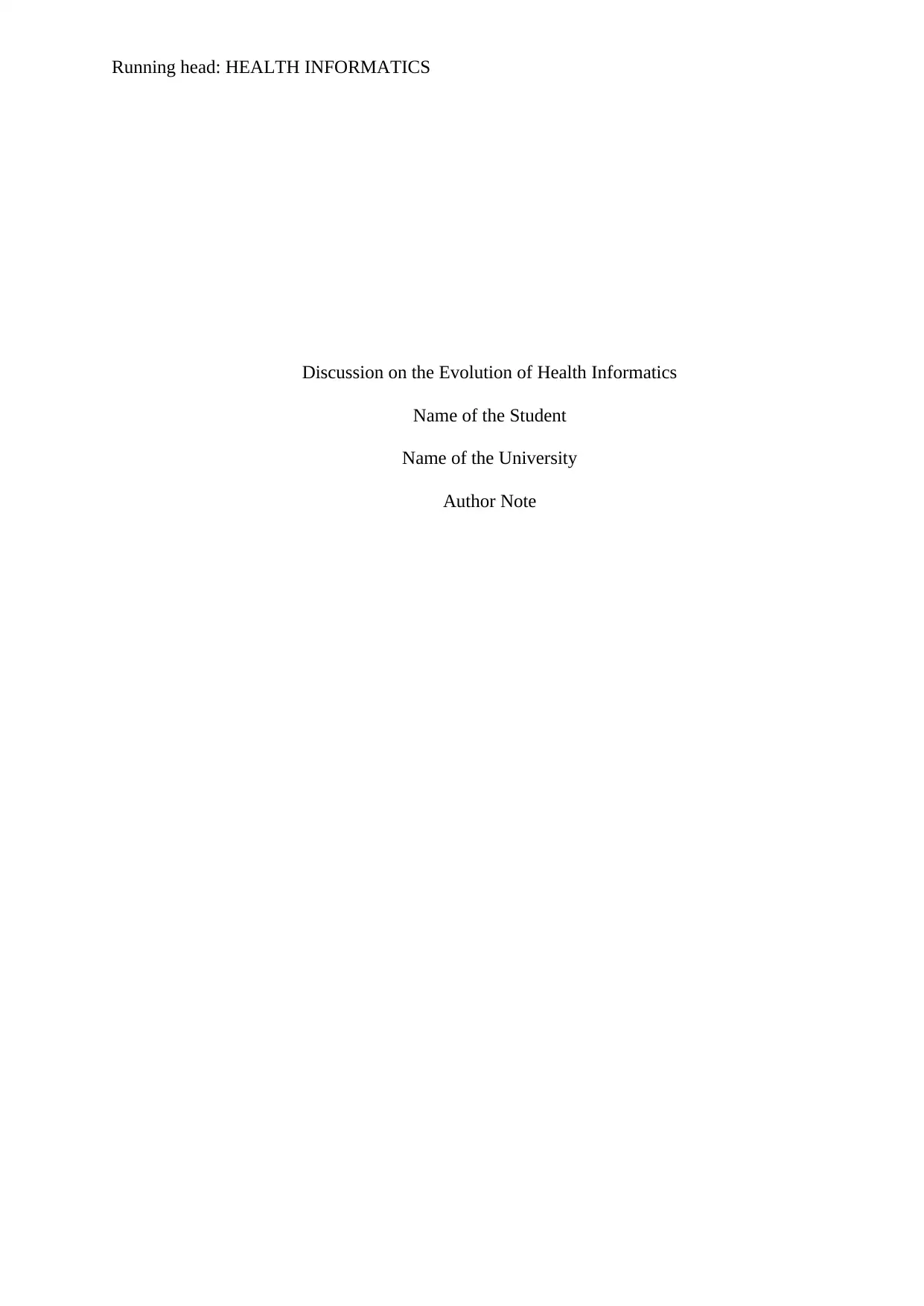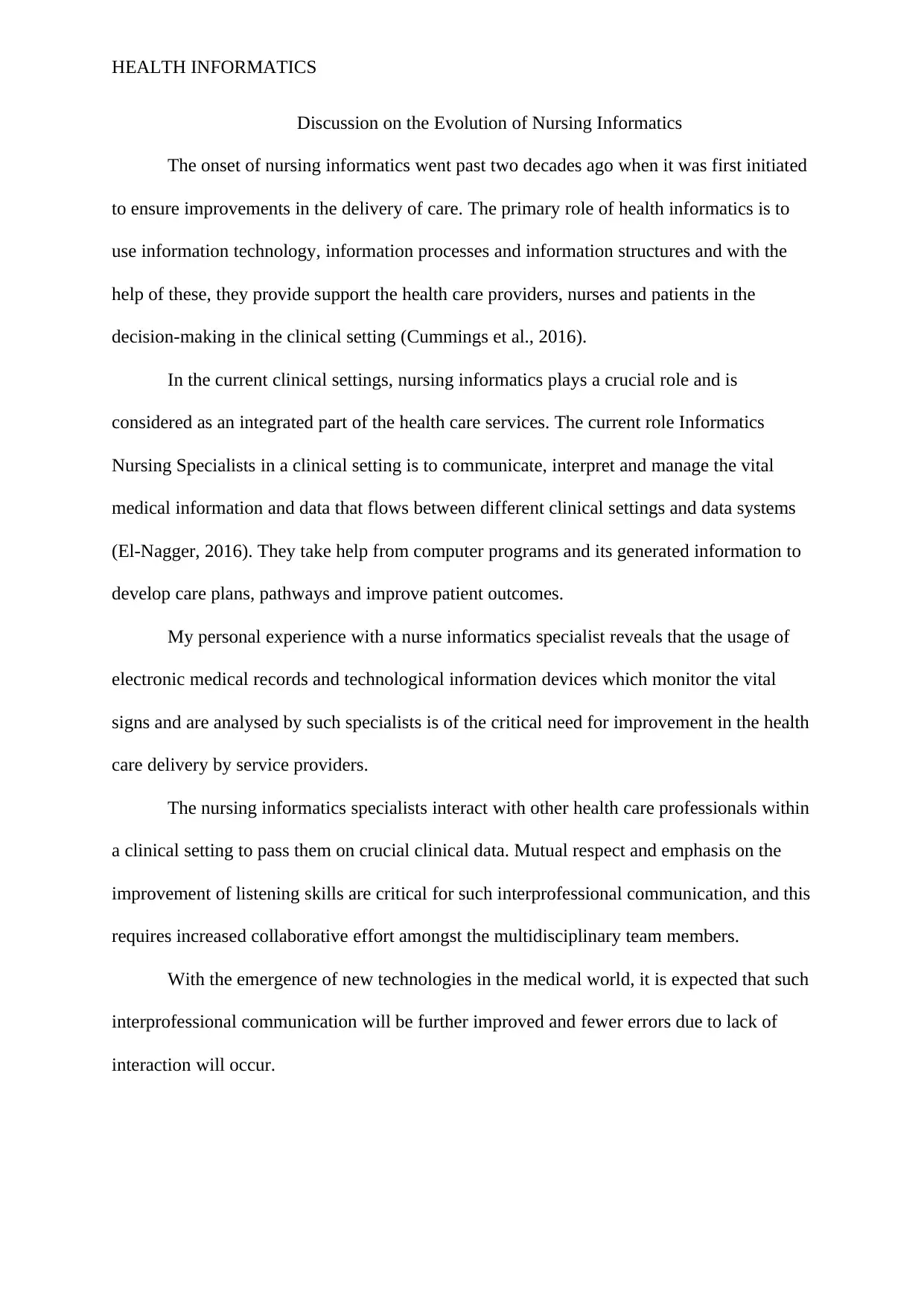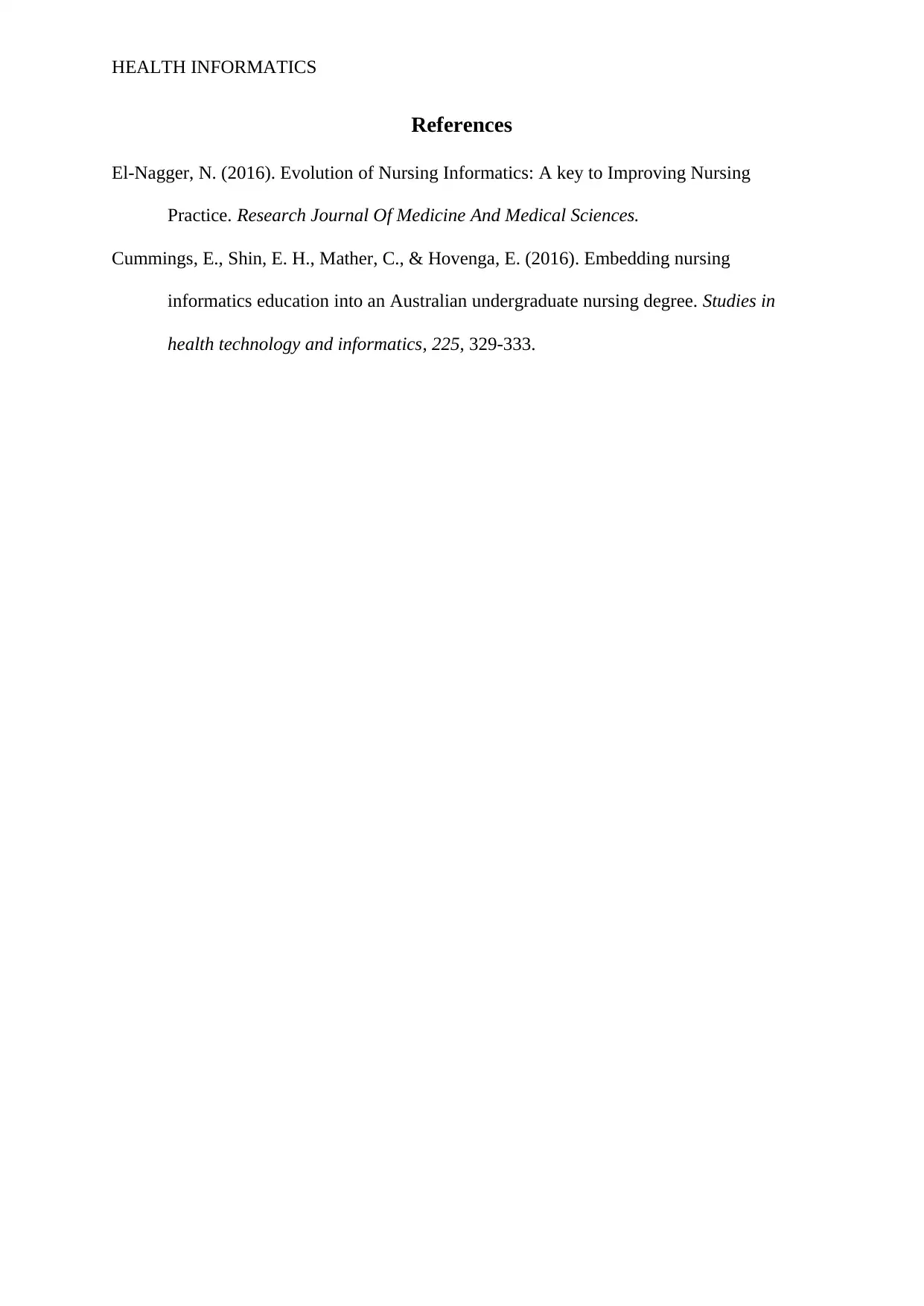Nursing Informatics: Evolution, Roles, and Clinical Impact
VerifiedAdded on 2022/08/20
|3
|393
|14
Report
AI Summary
This report examines the evolution of health informatics, emphasizing the role of nursing informatics in modern healthcare. It highlights the use of electronic medical records (EMRs), data systems, and technological advancements in clinical settings. The report also explores the interactions between nursing informatics specialists and other healthcare professionals, emphasizing the importance of communication and collaboration. The author discusses the impact of informatics on patient outcomes and the ongoing development of new technologies to improve healthcare delivery. The report also includes a discussion on the importance of interprofessional communication and the potential for future improvements in healthcare through technological advancements. The author has provided a personal experience of the impact of informatics in healthcare.
1 out of 3









![[object Object]](/_next/static/media/star-bottom.7253800d.svg)